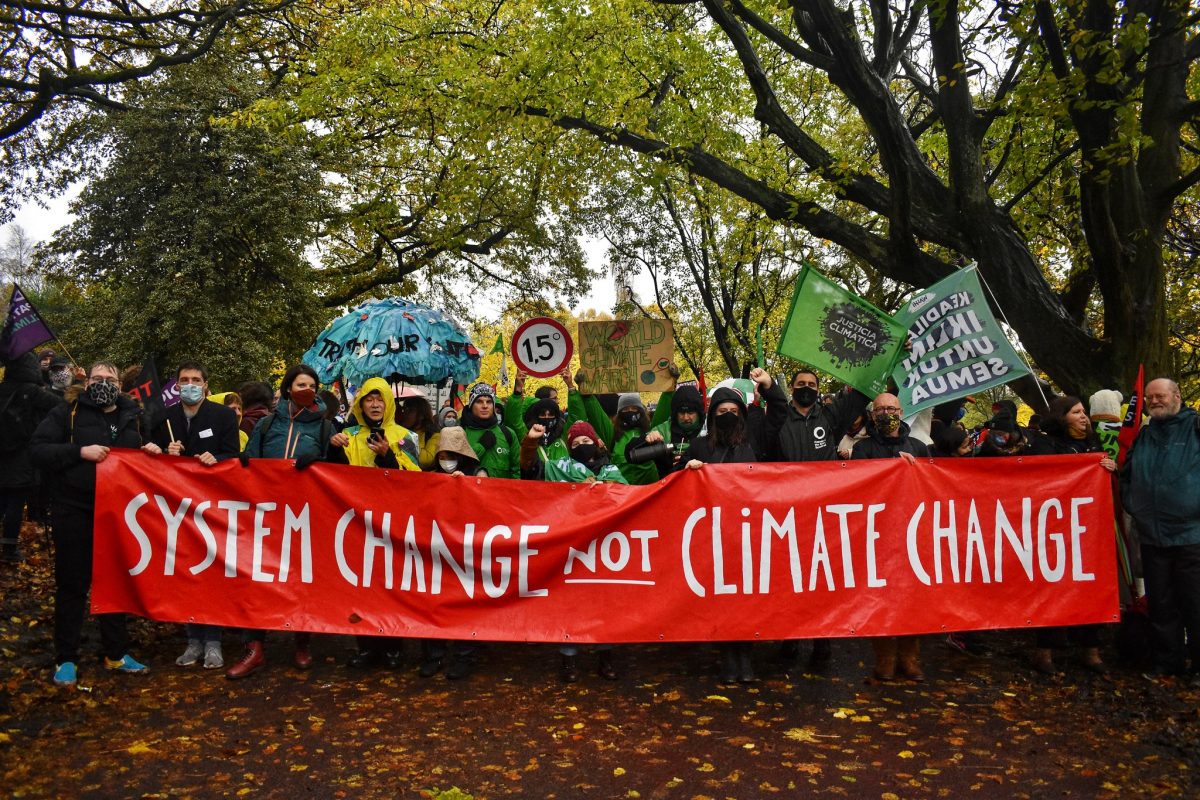
Coal and nuclear in Scotland could be phased out by 2030
Scotland could phase out all conventional thermal power by 2030, maintain a secure electricity supply and generate revenue from renewable exports, according to new research by one of the world’s leading energy consultants, Garrad Hassan.
“The Power of Scotland Secured”, published today (16 December) by Friends of the Earth with backing from RSPB and WWF, sets out how Scotland could guarantee security of supply, while decarbonising half its total energy needs by 2030.
Friends of the Earth Scotland Chief Executive Duncan McLaren said: “We already know that renewables can grow to comfortably exceed our electricity demand by 2020. What this report shows is that, contrary to popular myth, the variability of renewable power need not pose a threat to the reliability of our supply in Scotland.
“The transmission infrastructure required to keep the lights on at times of low renewables output will be easily justified by the value of exports which it will make possible at times of high output. Costs to consumers are unlikely to exceed those in other future scenarios.
In fact, with achievable demand management, and if home heating and transport are electrified in line with our recommendations, a 100% renewable grid system in Scotland could make overall household ‘triple fuel’ bills lower than in conventional scenarios.”
The research considers what infrastructure would be needed to meet peak demand in Scotland, assuming the simultaneous failure of the two largest transmission lines connecting Scotland to the rest of the UK grid, combined with zero output from onshore wind, offshore wind, wave generation, run-off river hydro, and tidal over a multi-day period.
It concludes that conventional thermal generation capacity would be unnecessary in that scenario assuming that the subsea connections intended for the east and west coast, and two proposed new pumped storage sites were to go ahead.
Dr Richard Dixon, Director of WWF Scotland, said: “This report shows conclusively that we do not need the proposed new coal-fired power station at Hunterston. Scotland should concentrate on saving energy and turning our huge renewables resource into green energy and green jobs.
“These new results should be used as strong election promises by any political party serious about Scotland’s place in the future global economy.”
Aedán Smith, Head of Planning and Development, RSPB Scotland said: “Given the importance of addressing climate change, which poses the greatest threat to biodiversity, we welcome the findings of this report that demonstrates that it is possible to deliver a clean and secure energy supply for Scotland without endangering Scotland’s environmentally sensitive sites.
“We urge the Scottish Government to encourage investment in clean energy technologies which can be delivered without endangering important environmental interests.”
ENDS
For media enquiries or PDF copies of the report, please contact:
Per Fischer, Press Office, Friends of the Earth Scotland
t: 0131 243 2719
Notes to Editors
The Power of Scotland Secured, based on research conducted for Friends of the Earth Scotland by GL Garrad Hassan.
www.foe-scotland.org.uk/power-secured
Some other key findings in the report are:
1. Without endangering important environmental interests, renewable electricity generation in Scotland can grow to comfortably exceed our electricity needs, bring in substantial export revenue, and allow for significant electrification of heat and transport sectors.
2. By 2020, renewables could be providing over 100% of Scotland’s electricity needs, and 185% by 2030. By combining this level of renewable electricity production with moderate efficiency measures, Scotland could decarbonise at least 50% of our total energy needs by 2030.
3. The interconnection capacity required for a secure electricity system is two to three times smaller than the interconnection capacity which would be economically justified by the value of electricity exports.
4. The overall costs of such a system are comparable to those in business as usual approaches. In fact, with significant electrification of heat and transport, overall household ‘triple fuel’ bills could be lower than in conventional scenarios.
5. Scotland does not need to risk unnecessarily extending the lives of aging nuclear plant. Nor do we need to take the financial and climate risks of new coal plants. We can help commercialise carbon capture and storage through demonstrations on existing power stations.
6. These conclusions depend on only moderate efficiency and conservation achievements, below the targets set by the Scottish Government. More ambitious energy demand reductions across all sectors would make system security and emissions reductions far easier and cheaper to deliver, and would reduce household fuel bills.
WWF Scotland is aiming for a future where humans and nature live in harmony, thriving within their fair share of the Earth’s natural resources, a One Planet Future with rich biodiversity – a green future, not a grey one.
wwfscotland.org.uk
The RSPB speaks out for birds and wildlife, tackling the problems that threaten our environment.
www.rspb.org.uk
Friends of the Earth Scotland exists to help people in Scotland look after the planet for everyone’s future. We think globally and act locally in Scotland, delivering solutions to climate change by enabling and empowering people to take both individual and collective action. We offer help to people with the big things in life – helping to sustain a healthy society and environment. We believe that all of our children’s futures will be better because of what we do.
www.foe-scotland.org.uk
